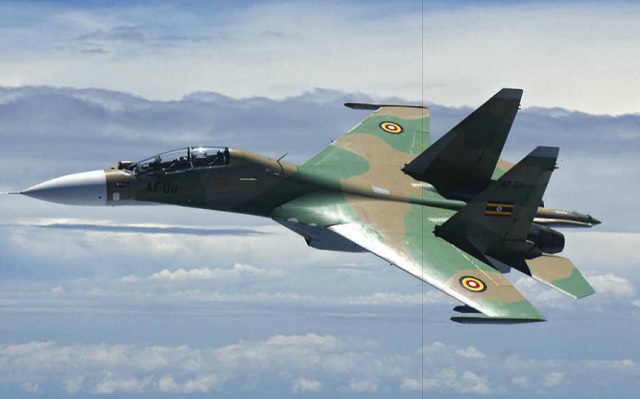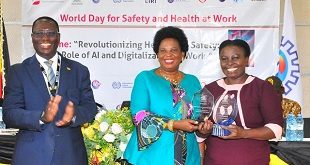
What he did not add was that added strength for the Russian consortia was that the Ugandan top leadership saw them as for government to access weapons. President Museveni could have handed the deal to his Chinese business-buddies. But he possibly opted to spread his sources of development finance to Russia. In this sense, the Ugandan leadership was counting on Russia’s world superiority as a counterweight to both the western powers, mainly America, and China.
Indeed, in the same year the government picked RT Global Resources as the best bidder for the refinery is the same year the Ugandan government entered an arms contract with the Russian firm, Rosoboronexport, which oversees all exports.
This contract resulted in the delivery of a VIP version of the Mi-171E helicopter to the Ugandan government in February this year from Russian Helicopters, which is part of Rostec Corporation, and is the only developer and manufacturer of helicopters in Russia. But now it appears picking the Russians appears to have been a blunder.
American warned Museveni
At the time, at a press conference at The American Embassy in Kampala in 2015, this reporter asked then U.S. ambassador, Scott De Lisi, his view on Uganda awarding the contract to the Russian consortia, of which one of the bosses of the company , Sergei Chemezov, faced U.S. and EU sanctions.
De Lisi said: “These (sanctions) are issues I am sure the government will have to look at carefully. They have designated a Russian company as the first on the list, absolutely, but they still have to negotiate a variety of issues that will go to financing and the rest. The (problems) maybe because of the sanctions imposed upon the parent company. There may be problems in terms of financing, inability to operate but we will see how all that plays out.”
He was referring to the sanctions the E.U and U.S. imposed on Rostec and VTB, which were part of the refinery deal. Rostec suffered a 14 percent drop in profits in 2014 as a result of these sanctions.
Indeed, the talks between government and the Russians collapsed early this year. And an official at the Energy Ministry said some of the companies in the consortia ceased having the financial muscle they claimed to have.
“We suspect that it was because of the sanctions,” he said. He added that the companies that were still interested wanted government to reach out to Moscow to have it lend a hand.
Now Museveni and his bureaucrats at Energy and Finance appear to be playing a blocked game with few options – even for raising a paltry US$500 of the US$4 billion needed for the refinery. Dozith Abeinomugisha, the official in charge of the refinery project at the Ministry of Energy at Amber House in Kampala told the Annual General Meeting of the Chamber of Mines and Petroleum in September that government was in the process of restructuring investment in the refinery deal.
Attempts to get the SK Group of South Korean, who were the alternate bidder, have failed. The official reason is that they do not have money. But that explanation is unsatisfactory because the government is now offering them exactly the deal that they indicated in their bid of 2013.
According to Dozith Abeinomugisha, initially, government wanted an investor to invest the biggest percentage of the money and own 60% of the project. The government would own 30% and regional partners states; Kenya, Tanzania, and Rwanda, the remaining 10 percent. That is how the Russians were picked.
Now, however, the government is determined to be the lead investor injecting 60% percent into the project. It then hopes to get a private investor to bring on board 30% percent, Abeinomugisha said. Regional partners are expected to put in the remaining 10 percent. However, the government is having a tough time finding the initial US$500 million.
So why are the South Koreans not biting the bait?
Initially, the government expected the South Korean consortium, to be in a hurry to happily pick what the Russians had dropped. Finance Minister, Matia Kasaija, while reading the 2016/17 budget announced that government was going to begin a new round of negotiations with the South Korean consortium. Instead, South Koreans too, chose to stay away. “The talks with the South Koreans never started,” is how Abeinomugisha put it.
Insiders intimated to The Independent that the Koreans felt angry and humiliated when even before the winner of the bid was picked in 2013, the Russians always appeared to mock them in meetings.
Apparently the Russians would amble around seeming unbothered and smoking their cigarettes even as the Koreans struggled to catch the eye of the Ugandan officials. The Russians reportedly even went as far as telling the South Koreans that they had already taken the deal.
To confirm their boast, the Russians reportedly would show off to the South Koreans some documents containing information about the refinery from the government, which government had denied the South Koreans.
One of the Ugandan negotiators confirmed this to The Independent.
“Government played a lot of games,” the official said, “They thought it was a great investment that no one could walk away from. But as it turned out, the Russians were hit by sanctions and couldn’t raise the money and the South Koreans also didn’t have the money.”
The Russians had even paid $ 2 million (USh 6.8 billion) as bond security, which they forfeited once the deal collapsed.
****
editor@independent.co.ug
 The Independent Uganda: You get the Truth we Pay the Price
The Independent Uganda: You get the Truth we Pay the Price



